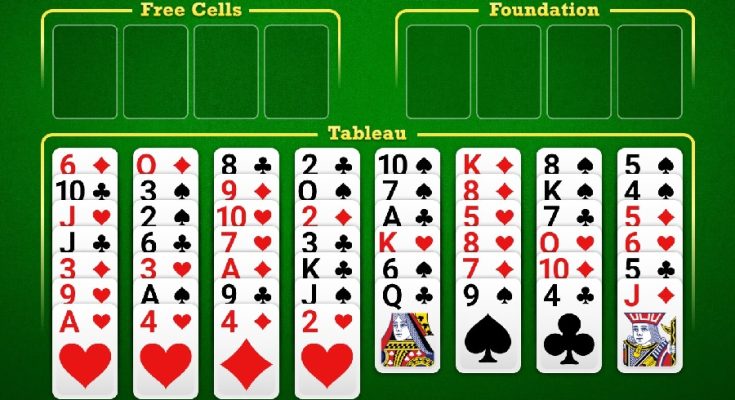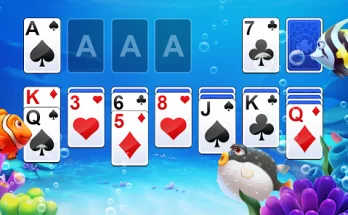For decades, the Freecell game has quietly occupied the digital desktops of millions. Tucked away in the classic Microsoft Windows package, it became a go-to pastime for office workers, students, and casual gamers alike. But what many overlook is that Freecell is far more than a way to pass the time. Beneath its simple interface lies a powerful educational tool that enhances problem-solving, strategic thinking, patience, and even memory skills.
In this article, we’ll explore the surprising educational value of Freecell, uncovering why this card game deserves recognition not just as entertainment, but as a mental workout with real-world applications.
A Brief History of the Freecell Game
The origins of Freecell can be traced back to earlier solitaire variations from the late 20th century. It was popularized in 1991 when Microsoft bundled it with Windows. What set Freecell apart from traditional solitaire was its emphasis on skill over luck. Unlike many card games, almost every deal in Freecell can be solved with the right strategy, making it a test of logic and perseverance rather than random chance.
This unique characteristic quickly made the game addictive not because it was flashy, but because it challenged players’ intellect in subtle ways.
Why Freecell Stands Out from Other Solitaire Games
Most solitaire games rely heavily on shuffling luck. You might win or lose simply because of how the cards are dealt. Freecell, on the other hand, demands planning and foresight. The placement of every card matters, and mistakes early in the game can block progress later on.
In short, Freecell rewards thoughtful play, which makes it especially useful as a tool for cognitive growth. Unlike games of chance, it provides consistent opportunities for skill-building.
The Cognitive Benefits of Playing the Freecell Game
1. Problem-Solving Skills
At its heart, Freecell is a puzzle. Each game presents players with a unique problem to solve: how to move all the cards into foundation piles in ascending order. Success requires analyzing the board, predicting consequences, and mapping out potential moves.
This mirrors real-world decision-making. Just as in Freecell, professionals often face complex challenges with multiple possible solutions. The ability to think several steps ahead, weigh trade-offs, and adjust strategy when obstacles appear is a transferable skill that benefits students, managers, and problem-solvers in any field.
2. Strategic Thinking
Freecell players quickly learn that impulsive moves rarely pay off. For example, moving a card into a free cell too early may limit available space later. This forces players to think not just about the next move but about the broader strategy.
Strategic thinking is highly valued in education and the workplace. Whether it’s writing an essay, managing finances, or leading a team, the same principle applies: consider the bigger picture, anticipate challenges, and avoid short-term gains that cause long-term problems.
3. Patience and Perseverance
Unlike fast-paced games designed for instant gratification, Freecell teaches patience. Many games can take 10, 20, or even 30 minutes to solve, requiring sustained focus. Players often encounter setbacks where the board seems blocked, but careful reconsideration usually reveals a way forward.
This experience builds perseverance a critical life skill. In school and work, success often comes not from quick wins but from the determination to keep trying when problems seem unsolvable. Freecell provides a safe environment to practice this resilience.
4. Memory Enhancement
Winning a Freecell game often depends on remembering where certain cards are and anticipating their sequence of play. Players strengthen their working memory by tracking card positions and planning future moves accordingly.
Research shows that games requiring memory recall can improve mental agility, especially as people age. For older adults, regular engagement with Freecell can serve as a fun and low-stress way to keep the mind sharp.
5. Mathematical and Logical Reasoning
Though Freecell doesn’t involve explicit arithmetic, it fosters logical reasoning. Players must mentally calculate possibilities, weigh probabilities, and identify efficient paths to the solution. These reasoning skills mirror those used in mathematics, programming, and analytical problem-solving.
Teachers and parents might be surprised to learn that encouraging students to play Freecell could indirectly support their logical thinking abilities in academic subjects.
Educational Applications of the Freecell Game
In the Classroom
While Freecell may not appear on a traditional syllabus, educators can leverage it as a supplementary activity. For instance, it could be used to introduce lessons on logical sequencing, probability, and strategy. Teachers might assign a session of Freecell and ask students to explain the reasoning behind their moves, promoting critical thinking and reflective learning.
For Corporate Training
Businesses often invest in training programs to improve problem-solving and decision-making. The Freecell game, though unconventional, can serve as an engaging icebreaker or team-building exercise. Employees who collaborate on strategies to solve challenging deals may strengthen communication and collective reasoning skills.
For Personal Development
On an individual level, Freecell provides a guilt-free form of relaxation. Unlike scrolling through social media or watching television, it engages the brain actively, making it a healthier way to unwind. Many players find that short sessions of Freecell between tasks improve focus and productivity.
Why Freecell Remains Relevant in the Digital Age
In today’s world of high-tech games and virtual reality, one might assume a simple card game would fade into obscurity. Yet Freecell continues to thrive. Its enduring popularity highlights a timeless truth: people are drawn to challenges that engage their minds.
Mobile apps and online platforms have further extended its reach, allowing new generations to discover the joys and benefits of the game. Its accessibility requiring no more than a smartphone or laptop makes it a universal tool for learning and leisure.
Life Lessons from Freecell
Beyond the measurable cognitive benefits, Freecell also imparts life lessons.
- Every move matters: Just as one hasty card move can derail a winning strategy, small decisions in life can have lasting consequences.
- There’s almost always a solution: With few exceptions, every Freecell deal is solvable. This reinforces the mindset that persistence and creativity can overcome most challenges.
- Adaptability is key: Sometimes the original plan doesn’t work, and players must adjust on the fly a reminder of the importance of flexibility in life and work.
Conclusion
The Freecell game may look like a simple pastime, but beneath its surface lies a treasure trove of educational value. From sharpening problem-solving skills to fostering patience, memory, and strategic thinking, Freecell offers benefits that extend far beyond entertainment.
In classrooms, workplaces, and homes, this unassuming card game can act as a tool for cognitive development and personal growth. In a world that often prioritizes speed and distraction, Freecell invites us to slow down, think deeply, and embrace the joy of problem-solving.
So the next time you open Freecell on your computer or phone, remember: you’re not just playing you’re learning, training, and preparing your mind for bigger challenges ahead.



